This website uses cookies so that we can provide you with the best user experience possible. Cookie information is stored in your browser and performs functions such as recognising you when you return to our website and helping our team to understand which sections of the website you find most interesting and useful.
Thursday 30 June 2016, 10:51 | By Chris Cooke
US Department Of Justice to amend collective licensing consent decrees in the one way the publishers don’t want
Business News Labels & Publishers Legal Top Stories

So this will be interesting. Slash annoying. Slash significant. Slash possibly game changing. Slash potentially a “clusterfuck”. And that last one, in case you wondered, is the conclusion of an unnamed music publishing executive who spoke to Billboard.
The US Department of Justice has seemingly decided not to amend the so called consent decrees that regulate the two big collecting societies in America, except to force onto the PROs the one thing the music publishers definitely didn’t want added. So that’s fun.
Whenever the music industry licenses collectively it raises competition law concerns, so it’s common for copyright law to apply some extra regulation in collective licensing scenarios. In the US, that regulation comes via the consent decrees, agreements between the DoJ and the two biggest songwriter societies – BMI and ASCAP – in which the PROs agree to certain regulations to overcome anti-trust concerns.
In recent years the music publishers have been calling for the consent decrees to be revised, arguing that the agreements – which date from the 1940s – aren’t fit for purpose in the digital age. A key change that the big publishers have been seeking is the right to partial withdrawal, basically to force digital services into direct deals with the publishers, rather than them getting licenses from the societies at rates usually set by the courts.
Such partial withdrawal is already possible in Europe, but when the major publishers in America told Pandora that they would stop licensing digital through the collective licensing system, the courts that oversee the consent decrees said they couldn’t do that – the rule, the judges said, was that with collective licensing you are either all in or your all out.
Which means that the only way to stop Pandora from licensing the song rights through the collecting societies would be pull from ASCAP and BMI entirely, meaning the publishers would have to license every radio station, gig venue, bar and restaurant directly too. No one really wants to do that, but Sony/ATV chief Marty Bandier said he’d consider it. Though some lawyers argue that the publisher’s songwriter contracts wouldn’t allow such a unilateral move, and the consent of the writers would be required.
Either way, the DoJ announced a review of the consent decrees, which meant that the stand-off on partial withdrawal was postponed, with the publishers hoping to get partial withdrawal rights via the review, so they could just pull digital out of the system. Meanwhile some digital services – Pandora in particular – started doing direct deals with some publishers anyway, because in the US the licensee can circumvent the societies if it so wishes, even though the publishers are obliged to license via the collective system.
According to Billboard, the publishers are not going to get the big change they wanted to the consent decrees on partial withdrawal. Instead, the DoJ is going to introduce the one big change the publishers did not want – 100% licensing.
Basically, this mean that if BMI controls 50% of a song, and a licensee has a BMI licence, it will be able to make use of that song without getting a licence from whoever controls the other 50%, which might be ASCAP, or one of the smaller US societies, SESAC and GMR. The licensee will pay 100% of the royalty at the rate it agreed with BMI, which will then be responsible for passing half the money onto the other party.
In theory this system already exists in the US for direct licensing, in that any publisher with a stake in a song has the power to license that song in its entirety, providing it shares the money with whoever else has a stake. Though in reality agreements between songwriters and publishers mean this rarely happens. Nevertheless, the DoJ wants to force the 100% licensing principle onto collective licensing.
Because so many songs are co-written and therefore co-owned – and in the US, therefore, represented by multiple societies – many publishers fear that this move will enable licensees to push down the rates by licensing songs in their entirety by whichever society offers the best deal – possibly to the detriment of songwriters who possibly chose one of the smaller societies to get a better rate in certain scenarios. It’s also not clear how BMI, for example, would pay an ASCAP member, and whether two commissions would be applied to that income before it reached the songwriter (ie if it went from BMI to ASCAP to writer).
Hence “this decision will create a clusterfuck of epic proportions for the US music publishing industry”. BMI and ASCAP have to agree to the revised-in-the-wrong-way consent decrees, so could fight the DoJ’s decision through the courts. Plus the rate courts that oversee collective licensing Stateside need to approve any amendments too, and the publishers hope that they might have an opportunity to object at that point. So the battle isn’t lost as yet.
Though if none of that is successful, the publishers have to decide whether or not to go for the nuclear option – pull from collective licensing in its entirety, even though that raises all those legal questions around songwriter consents, not to mention issues with the non-US repertoire BMI and ASCAP represent through their reciprocal agreements with societies elsewhere in the world. Clusterfuck indeed.
ASCAP and BMI have confirmed that they met with the DoJ this week to discuss the proposed amendments of the consent decrees, adding: “We are both evaluating the information presented and informed the DOJ we will respond to its proposal in the near term”.
Officials at the department are expected to meet with publishers and digital services next week to discuss the revisions, after which the publishing sector will have to decide it’s next move. Which will be interesting. Slash… well, you decide.
READ MORE ABOUT: ASCAP | BMI | US Department Of Justice
Thursday 30 June 2016, 10:47 | By Chris Cooke
Kobalt’s AWAL announces alliance with Music Glue
Business News Deals Digital Labels & Publishers

The Kobalt digital distribution service AWAL has announced a new alliance with direct-to-fan platform Music Glue, with the two companies saying that they will both now “explore ways in which they can continue adding value to artists they work with by building out supplemental services for clients”.
Which presumably means offering each other’s services to their respective customers – AWAL being all about getting content into digital platforms, while Music Glue provides tools for selling digital content, merchandise and tickets direct.
Kobalt Label Services boss Paul Hitchman says: “Kobalt’s partnership between AWAL and Music Glue is an exciting extension to the services we both offer, and another step toward creating a network of technologically advanced solutions for our clients. We look forward to working with the team at Music Glue to explore all the ways in which we can effectively help each other’s artists and label clients”.
While Music Glue’s Mark Meharry added: “One of the key philosophies we share with Kobalt is a desire to empower artists. Our new partnership will offer AWAL’s clients the freedom to take control of more aspects of their businesses and to engage directly with music fans in a powerful, creative and commercial relationship”.
READ MORE ABOUT: AWAL | Kobalt | Music Glue
Thursday 30 June 2016, 10:45 | By Chris Cooke
MPA chief Jane Dyball comments on Brexit at AGM
Business News Labels & Publishers
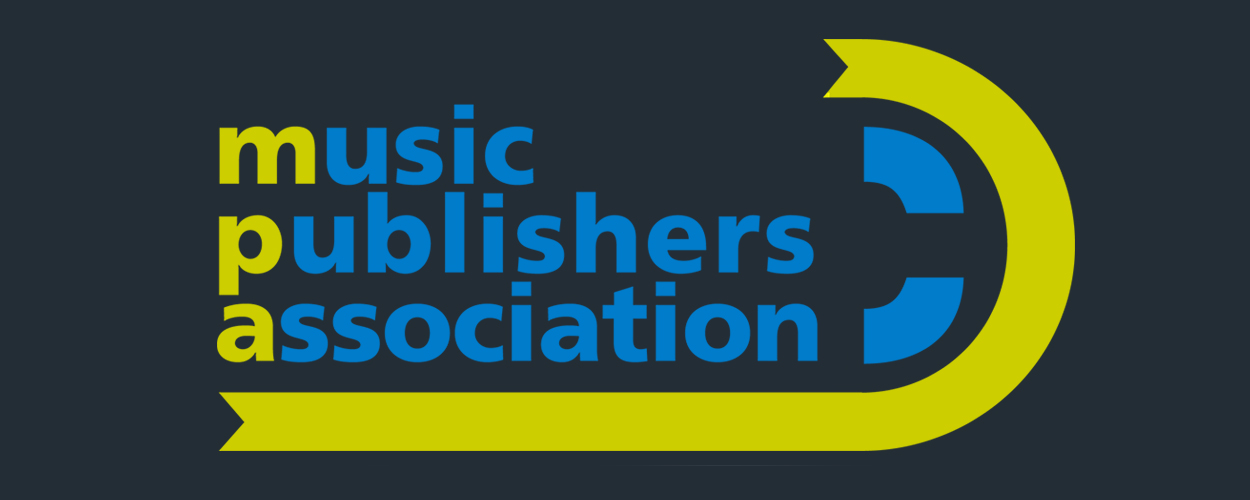
There was lots of news from within her own industry and organisation to comment on yesterday, but the boss of the UK’s Music Publishers Association Jane Dyball also used her group’s AGM to comment on that other big news story of the moment: bloody Brexit.
“Before we finish we have to mention the referendum”, said Dyball in her speech to the general meeting. “To those who voted differently to us it’s time to be friends again. To our European colleagues who have made the UK their home, we still love you. To the EC with whom we have had a love hate relationship we say ‘you haven’t seen the last of us – everything you do affects our truly international business'”.
Acknowledging that post-Brexit key areas currently under the remit of the European Union, like copyright reform, will fall back to UK legislators, Dyball added: “To those governing us in the UK, we say ‘be gentle with us. We have adapted our businesses wholesale over the past 40 years and are true Europeans. It will be hard and expensive for us to dismantle our world’. To the marketplace we say ‘we are a business ready willing and able to adapt’. Our business continues to evolve over its 200 year history. I myself have learned something new every day for the past 30 years”.
Earlier in her speech, Dyball referenced the recent overhaul of her organisation, which now formally trades as the MPA Group Of Companies, with the licensing bodies MCPS, IMPEL and PMLL now more closely aligned to the trade association which owns them. With four businesses within the group, it means there is lots to get through at the AGM.
Referencing some of the conversations that preceded her speech at the ‘annual rightsholder meetings’ for the different parts of the group, she observed: “At the PMLL ARM, we heard about this surprising business that licences the copying of print music, and which went from £0 to a £3m-plus turnover a year right from the get-go … [and] about the significant scope for extending this business. [And] at the IMPEL ARM we heard about our digital business, about its growth both in terms of membership and turnover, and about the challenges ahead and how we are planning on facing them”.
And as for MCPS, she commented on the previously reported move to put the operations of the mechanical rights society – currently handled by performing rights organisation PRS – out to tender. “I do not propose getting into detail here but we were delighted at the response we have received to the RFP process and are reviewing responses”. It will be interesting to see quite what decisions are now made on that front, and what Dyball and MPA will be reporting to their members in a year’s time.
READ MORE ABOUT: Jane Dyball | MCPS | Music Publishers Association (MPA)
Thursday 30 June 2016, 10:44 | By Chris Cooke
Brooklyn Brewery launches label venture with The Graveltones
Artist News Brands & Merch Business News Deals Labels & Publishers

Well, we all know bands selling beer has become a thing in recent years, so why not beer brands selling music? The Brooklyn Brewery has announced a new label venture which will see it release music recorded at live shows it stages in the UK involving independent acts.
The first is a limited release from The Graveltones recorded at a gig at London’s The Lexington last October. The performance was captured and pressed straight to vinyl. Explains the band’s Jimmy O: “We wanted to do it in an old school kinda way, really raw and truthful to the show, no studio wizardry and all that stuff – just hit record and print. Brooklyn was thinking the same thing so it was all pretty instant”.
For its part, the Brooklyn Brewery says it hopes to make the gig-record-release initiative something it does on a regular basis under the Brooklyn Brewery Records brand. “The goal is to produce a set of carefully curated live albums that preserve each show in all its glory”, says the beer firm.
To celebrate the release, the brewery are staging two in-stores with The Graveltones, at Flashback Records in Bethnal Green on 6 Jul and Rough Trade in Nottingham on 7 Jul. Meanwhile you can listen to ‘Catch Me On The Fly’ live at the Lexington here:
READ MORE ABOUT: Brooklyn Brewery | The Graveltones
Thursday 30 June 2016, 10:39 | By Chris Cooke
US senator hits out at Apple for abusing market dominance to hinder streaming music rivals
Business News Digital

US Democrat senator Elizabeth Warren has hit out at Apple, Google and Amazon for using their mega-size to “snuff out competition” in a speech at an event in Washington called ‘America’s Monopoly Problem’.
Picking out individual examples of how the three big tech giants have each arguably abused their market dominance to the detriment of smaller rivals, Warren said, according to 9To5Mac: “Google, Apple and Amazon have created disruptive technologies that changed the world, and … they deserve to be highly profitable and successful. But the opportunity to compete must remain open for new entrants and smaller competitors that want their chance to change the world again”.
Although the music industry prefers bashing Google to Amazon and Apple these days, it was the latter where Warren picked a music-based example, noting that the IT firm “has placed conditions on its rivals that make it difficult for them to offer competitive streaming services”.
That particular issue was back in the news relatively recently, of course, when Apple announced it would cut the commission it charges other companies – like streaming services – which collect subscriptions through their iOS apps. Though, as previously reported, when that was announced, Spotify remained critical of Apple, which is now a direct competitor in the streaming music space, of course.
After Warren’s remarks, Re/code spoke to Spotify for an immediate response. “Apple has long used its control of iOS to squash competition in music, driving up the prices of its competitors, inappropriately forbidding us from telling our customers about lower prices, and giving itself unfair advantages across its platform through everything from the lock screen to Siri”, said Spotify’s top comms man Jonathan Prince.
He went on: “You know there’s something wrong when Apple makes more off a Spotify subscription than it does off an Apple Music subscription and doesn’t share any of that with the music industry. They want to have their cake and eat everyone else’s too”.
Ah, cake, that would nice wouldn’t it? They sell really good banana cake in the hotel I’m currently staying in. But anyway, take that Apple. And Amazon. And Google. And Spotify. Oh no, not Spotify. You’re all groovy. Elizabeth Warren says so. Have some cake to celebrate.
READ MORE ABOUT: Apple | Apple Music | Elizabeth Warren | Spotify
Thursday 30 June 2016, 10:37 | By Andy Malt
Brexit “needs to happen”, says Bat For Lashes
Artist News

Natasha Khan, aka Bat For Lashes, has said that she feels the UK’s exit from the European Union “needs to happen to revolutionise the structures on which we build our society”.
Answering a fan question about the result of the UK’s EU Referendum in a Q&A on the Guardian website, Khan said: “I’m obviously devastated by the message that this choice has put out to the world, because I’m a product of a multicultural society. My mother lives in Germany, I have French aunties and uncles and cousins, and I’ve benefitted from being part of the European community. And my dad is Pakistani, an immigrant in this country, and met my mother and I was born out of his ability to come and live and work here”.
However, she continued, while in the near term we are facing some difficult times, “from a grander perspective, [Brexit is] an important part of the breakdown of outmoded political and economic models”.
“I hope this helps us to break down the things that aren’t working for us any more”, she said. “And to bring about more emphasis on community, loving our neighbours, re-educating ourselves that we are all global citizens, and start to rebuild structures we’re facing in the future, like stopping wars that create the immigration crisis, environmental issues we’ve been ignoring for too long, and the fact we need to reach out to each other as a global human race”.
“Obviously this sounds like a fairly idealistic view”, she added, before you could beat her to it. “But I do believe the breakdown of the EU, whether I agree with it or not, is a symptom of a greater breakdown, and although it’s painful for us in the near future, including for artists and musicians, I somehow have the sense it needs to happen to revolutionise the structures on which we build our society. It’s a wake-up call. I’m working out my opinions on it still – it’s still fresh”.
If you have some thoughts on the UK leaving the EU, don’t forget to let your MP know about them.
READ MORE ABOUT: Bat For Lashes
Thursday 30 June 2016, 10:34 | By Andy Malt
Paul Simon preparing for retirement
Artist News Gigs & Festivals
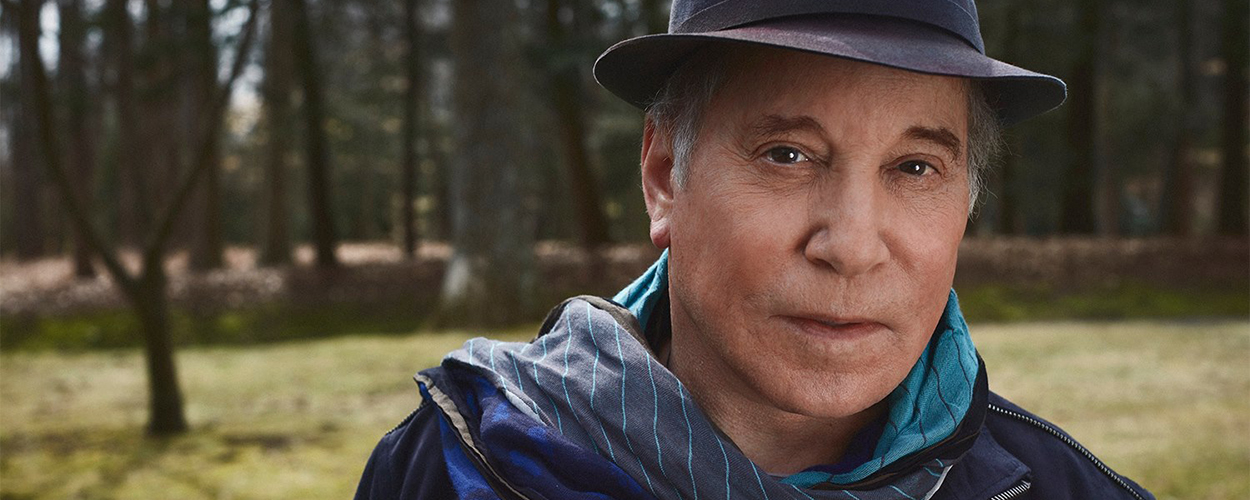
Paul Simon may be preparing to retire, following a final tour to promote his recently released new album, ‘Stranger To Stranger’.
Speaking to the New York Times, he said: “You’re coming towards the end. Showbiz doesn’t hold any interest for me. None”.
While that does sound fairly final, he added: “It’s an act of courage to let go. I am going to see what happens if I let go. Then I’m going to see, who am I? Or am I just this person that was defined by what I did? And if that’s gone, if you have to make up yourself, who are you?”
READ MORE ABOUT: Paul Simon
Thursday 30 June 2016, 10:31 | By Andy Malt
Moddi releases cover of ‘banned’ Kate Bush song
Business News Gigs & Festivals Releases

Moddi has released another track from his upcoming album covering banned songs by other artists, ‘Unsongs’. This latest effort is a version of Kate Bush’s ‘Army Dreamers’, the original version of which was banned by the BBC, eleven years after it came out, at the start of the First Gulf War.
“‘Army Dreamers’ became one of Kate Bush’s most popular songs and was widely played on radio and TV until the First Gulf War in 1991, when it suddenly disappeared from all BBC playlists”, says Moddi.
Though whether it was actually banned is not 100% clear, he admits: “The BBC has had an absolute ‘no comment’ policy on this issue. It has been impossible for me to verify that it has even been removed from radio airplay”.
Moddi’s last single from ‘Unsongs’ was his cover of Pussy Riot’s ‘Punk Prayer’, an unauthorised performance of which in a church landed three members of the Russian group in prison.
‘Unsong’ is due out through Propellor Recordings on 16 Sep. You can catch Moddi live in London on 3 Oct at St Giles-In-The-Fields.
READ MORE ABOUT: Kate Bush | Moddi
Thursday 30 June 2016, 10:29 | By Andy Malt
CMU’s One Liners: Rita Ora, Musical.ly, Metallica, more
Artist News Business News Deals Digital Gigs & Festivals Labels & Publishers One Liners Releases

Other notable announcements and developments today…
• A man accused of breaking into Rita Ora’s North London home and stealing £200,000 of goods has been found guilty.
• Lip-syncing video app Musical.ly – via which people record themselves reacting to short snippets of top pop tunes – has done its first major label deal with Warner Music, it’s been confirmed. Apparently the lip-sync-tastic app already has 90 million users worldwide.
• Ice-T’s Body Count have signed to Century Media and are set to release a new album, ‘Bloodlust’, in 2017. “It’s cool to be a member of the Century Label Group”, says Ice-T.
• Arwen Curson, formerly a UK-based artist manager with ATC, has joined Universal Music Publishing Australia & New Zealand as VP Creative. She was most recently with that Crowdmix thing, also in Australia. She’s “stoked” about the new job. There you see, you don’t have to be “THRILLED”, there are, in fact, other words available.
• Italian menswear brand Brioni has hired Metallica to star in its latest advertising campaign.
• Angel Olsen has released another song form her forthcoming new album, ‘My Woman’, which is out in September. Here’s ‘Shut Up Kiss Me’. She’s touring the UK in October too, finishing up at Koko in London on 17 Oct.
• Agnes Obel has released new single, ‘Familiar’. She’s also announced UK tour dates in November, including a show at Shepherds Bush Empire in London on 27 Nov.
• Sofi Tukker have released a new song called ‘Awoo’. And here it is.
READ MORE ABOUT: Agnes Obel | Angel Olsen | Arwen Curson | Body Count | Brioni | Century Media | Ice-T | Metallica | Musical.ly | Rita Ora | Sofi Tukker | Universal Music | Universal Music Publishing
Thursday 30 June 2016, 10:26 | By Andy Malt
Aphex Twin premieres new EP at trade fair
And Finally Artist News Releases

Last week the world of musical instrument buyers and sellers convened on Nashville for the annual National Association Of Music Merchants’ summer trade fair. As well as browsing the latest in musical instruments, attendees could watch the finals of the World’s Fastest Drummer competition, sit in on an extended session titled ‘The Dumbest Things Music Retailers Do’, and check out a stall promoting the new Aphex Twin EP, ‘Cheetah’.
Yeah, Aphex Twin had a stall at a trade fair, what of it? It is seemingly the latest step in a promotional campaign to mirror the actual marketing of the Cheetah MS800 synth he used to create the EP.
The producer’s own Cheetah MS800 synth was displayed on the stand, along with what is believed to be one of the last remaining original boxes, and a print out of its user manual. Now a rarity, the early 90s synth failed to find success because it was notoriously difficult to programme, explains Synthopia. Which, of course, means it was pretty much made for Richard D James.
Having already published an advert mimicking the original trade press ad for the MS800, a stall at a trade fair was the next obvious step. Take a tour of the stand here:
READ MORE ABOUT: Aphex Twin
Thursday 30 June 2016, 10:18 | By Andy Malt
Approved: Exploded View
CMU Approved

Exploded View formed in 2014, as Annika Henderson prepared to make her live debut in Mexico in her solo guise, Anika. Rehearsing with local musicians Martin Thulin, Hugo Quezada and Hector Melgarejo, they hit upon a new sound, separate from that which they were preparing to perform at that solo show. Heading into the studio, they recorded an album’s worth of songs, heavily improvised, straight to tape, first takes.
The first track unveiled from that album, due for release on Sacred Bones on 19 Aug, was ‘No More Parties In The Attic’, driven by rolling bass and synth lines that bounce hypnotically. Following this week is ‘Orlando’, a dreamier, more upbeat song that shimmers alongside its drug-fuelled line dancing video.
Commenting on the new associations brought to the song’s title earlier this month, Henderson says: “The song ‘Orlando’ was written at the end of 2014, and its video was completed shortly before the terrible events in Orlando, in the early hours of 12 Jun, when the most deadly mass shooting in the United States shook the country, the world and the queer community to its core, as the targets were clearly chosen, simply for being who they were, conducted in a space that has traditionally been one of protection, a safe haven for the queer community for decades: the dancefloor”.
“In the wake of our pain, when some have downplayed the chosen identity of the victims, while others may have concentrated solely on that, it is important to remember that this affects all of us”, she adds. “Whatever happens, dancefloors should continue to be a space for freedom of expression, for life’s simple pleasures and a safe haven for so many communities around the world”.
The band will play a show at the Shacklewell Arms in London on 23 Aug. And you can watch the video for ‘Orlando’ now.
Stay up to date with all of the artists featured in the CMU Approved column in 2016 by subscribing to our Spotify playlist.
READ MORE ABOUT: Anika | Exploded View
Wednesday 29 June 2016, 10:34 | By Chris Cooke
Boss of Russian collecting society arrested over fraud allegations
Business News Labels & Publishers Legal

The boss of the Russian music industry’s collecting society RAO – Sergei Fedotov – has been arrested on suspicion of fraud following an investigation into allegations royalties collected by the organisation were used to buy properties which were then transferred over to third parties.
As previously reported, last summer it was announced that RAO, the Russian collecting society for music publishers and songwriters, would merge with record industry society VOIS and private copy levy body RSP, to create one super music rights organisation in the country which, RAO chiefs said, would be more efficient and more transparent.
But then the boss of VOIS said he’d not been consulted about any merger. Then there was talk of changing Russian law to allow new rival collecting societies to be set up to compete with the merged RAO/VOIS/RSP super society. And alternative proposals were also floated to abolish all that entirely and just have a government department manage the collective licensing of music rights.
It was in among all of this that RAO confirmed it was under investigation over the embezzlement allegations, with the society insisting that its past property transactions, worth some 500 million roubles, were all legit. That investigation has seemingly been going on ever since and, according to local media, Fedotov’s office and home were both searched by police on Monday resulting in the RAO chief’s arrest yesterday. So far bail has been denied.
Fedotov’s legal rep is quoted by Russian news agency RBC of denying all of the allegations against his client, while RAO itself continues to insist nothing illegal has occurred. A spokesman told Billboard: “RAO’s General Director Sergei Fedotov and the organisation’s other employees are fully cooperating with the investigation, helping it to find out the truth. We are sure that a qualified investigation will lead to establishing no wrongdoing in Sergei Fedotov’s action”.
The big RAO/VOIS/RSP merger was seemingly called off last autumn, though RAO insists a reform of collective licensing in Russia is still needed. The Russian government seems to agree, though has alterative proposals to those put forward by RAO. But the country’s Communications Minister, Nikolai Nikiforov, insisted to local media that Fedotov’s arrest is unrelated to disagreements about collective licensing reform.
READ MORE ABOUT: Russian Authors' Society (RAO) | Sergei Fedotov
Wednesday 29 June 2016, 10:33 | By Andy Malt
Roc Nation launches Nashville-based company with Warner/Chappell
Business News Deals Labels & Publishers

Roc Nation has partnered with Warner/Chappell in order to launch a new division, Roc Nation Nashville. The new joint venture will then partner with songwriter and producer Jesse Frasure on another company, Rhythm House, which will oversee Frasure’s own activities as well as developing new artists.
Roc Nation President Jay Brown says in a statement: “There is nothing like working with the right individuals, at the right time, forming the right partnership. Launching Roc Nation Nashville with Warner/Chappell Music Nashville is a natural extension of the relationship we started so many years ago, and our venture with Jesse Frasure and his Rhythm House take the possibilities to a next level. Jesse’s talent, understanding of the craft and creativity are unmatched”.
“I am THRILLED to welcome Roc Nation to Music City and to our Warner/Chappell Nashville family”, adds Warner/Chappell Music Nashville’s EVP Ben Vaughn. “All of us at WCM are excited to expand our already successful relationship that started with Jon Platt, Jay-Z, and Jay Brown”.
Meanwhile, Frasure wants a word: “I’m honoured and grateful to begin this next chapter with partners like Roc Nation and Warner/Chappell, whom I’ve admired throughout my career. Having this opportunity is a dream come true”.
Rhythm House will be overseen day-to-day by BJ Hill, who will split his time between the company and his A&R role at Warner/Chappell.
READ MORE ABOUT: Rhythm Nation | Roc Nation | Warner Chappell
Wednesday 29 June 2016, 10:31 | By Chris Cooke
Data firm Entertainment Intelligence launches playlist tracking app
Business News Digital

Music data firm Entertainment Intelligence has announced the launch of a new playlist tracking app designed to help artists and labels understand the impact of playlists on how much their music is streamed, and therefore what income is generated.
Analysing and utilising the flood of social, sales, consumption and other data that is now available to music companies has been a challenge for a number of years now, of course, with various agencies offering platforms to collate and crunch all the stats. Though a number of those have subsequently been bought by digital music firms as in-house insight services.
Still independent Entertainment Intelligence says it “has been quietly working on a suite of [data] applications, including catalogue and campaign management; social and sales reporting and analytics; and playlist tracking. The company is working directly with record labels, music publishers, booking agents and management companies to craft the ultimate tools the music industry needs to solve the challenge of refining data to create actionable intelligence”.
Working out what impact the playlists on different streaming services have on consumption and therefore revenue has been rising up the data crunch priority list for a while now. Says EI of its new playlists-focused app: “The playlist app allows unprecedented insight into consumer behaviour, and the impact of playlist inclusion, with a significant level of granular data”.
EI director Sammy Andrews adds: “We’re building tools that will take your data, clean it and present it in a way that allows all stakeholders in the artist ecosystem to make informed decisions. We look forward to working with many more labels, artists and managers who want to understand their playlisting landscape, as well as working with the rest of the industry on some amazing tools we have in development”.
READ MORE ABOUT: Entertainment Intelligence
Wednesday 29 June 2016, 10:30 | By Andy Malt
CMU@TGE: Who the hell is buying all these t-shirts?
Brands & Merch Business News Labels & Publishers The Great Escape 2016
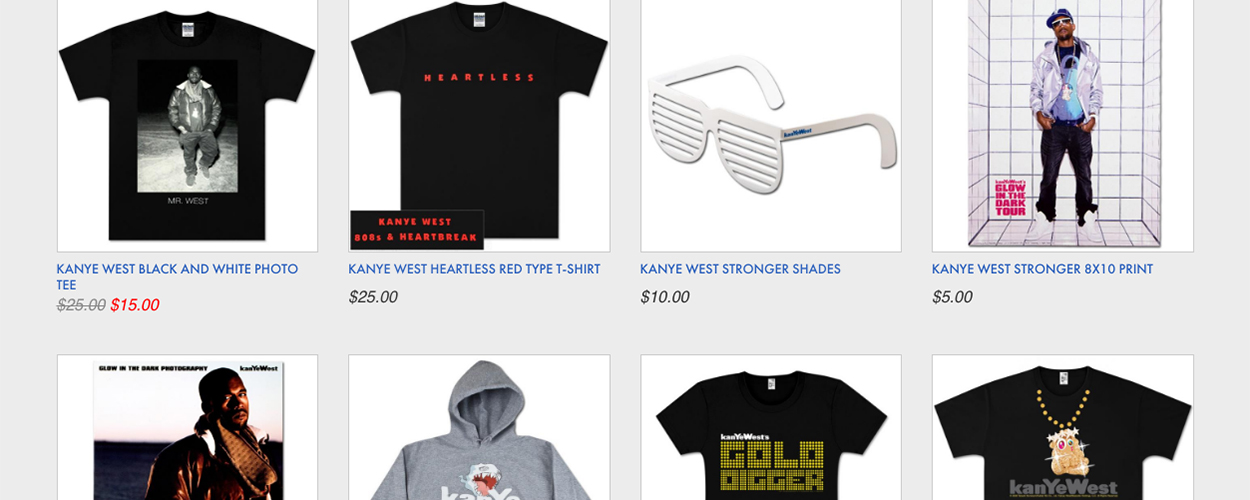
Look out for insights, advice and viewpoints dished out at this year’s CMU Insights @ The Great Escape conference here in the CMU Daily throughout June and into July. This week, some of the takeaways from the physical products strand.
Having looked at the CD market and how it remains more buoyant than we might have expected in 2016, talk at the CMU@TGE physical strand moved on to merchandise. There is a perception that this is now an area where artists make their money, but is that the case? And who is buying all these t-shirts anyway?
Many would have you believe that it’s The Kids who are stocking up on merch with all the money that they’re not spending on recorded music – though we found out earlier in the day that more young people are actually buying CDs than you probably think. And, said Media Insights Consulting CEO Chris Carey, who kickstarted CMU@TGE’s merch discussion, there are many merch selling opportunities to be had with older music fans too.
“Merch is not only a young person’s activity”, said Carey, citing his company’s own consumer research. “We assume that old people buy CDs, young people buy t-shirts. It’s not necessarily the case. Looking at 16-24s, about 23% have engaged with merchandise over the last three months, but what’s interesting is that there are still opportunities in the 35-44 and 45-54 year old groups. Those groups have some cash to spend and they’re interested in buying merch”.
While for younger consumers merch purchases might be hoodies, older buyers are actually more likely to buy something like a book. Therefore it’s important for artists and their business partners to consider who their audience is and what sort of products they might be interested in buying.
Carey also noted that while 25% of the UK population have bought some merch in the last year, more than 55% have bought a CD. This doesn’t tally with the common narrative of how the music industry is evolving, and could lead to opportunities being missed, he said.
“The risk is that merch is seen as the only way of making money, and therefore you go after a quarter of the population, rather than also respecting the other revenue streams that can be valuable”, he added. “Different types of people need different products”.
“I think that there is a misconception about what’s gone on with merch”, cautioned BSI Merch’s Andy Allen in the subsequent discussion. “Just because people have started spending less on recorded music, doesn’t necessarily mean that they’ve transferred that available disposable income to purchasing merchandise within the music world”.
Music competes with other entertainment products, he added. “For example, when I grew up, there were maybe one or two cartoons that came out per year, now we’re talking about two or three animated films being made available per week. All I feel is that the money has been distributed elsewhere. I’m not saying that certain artists haven’t benefitted, but what has happened is that those artists have been highlighted, and then we start perceiving that automatically more money is being made through music merchandise. I wouldn’t agree with that particularly”.
However, that’s not necessarily a doom and gloom observation, more it means that the potential of merch hasn’t been fully tapped by many artists. Allen added: “Predominantly within the industry there’s a lack of focus on merchandise. For the artist, it isn’t usually their core business. There are exceptions – a lot of metal acts and a variety of pop acts, and others – who have seen their brand appeal with a specific audience and they have seized on it. But in general, most artists tend to not focus attention on their merch, so the sector is actually still in a very embryonic stage”.
Focusing on some of those opportunities, David Boyne of Universal’s merch company Bravado talked up the potential of working more closely with the fashion industry. “I talk quite often about that fusion of fashion and music and that’s been responsible for a lot of the growth that we’ve seen over the last four or five years”, he said. “Yes, you’ve got the fan that wants to buy into merchandise, but actually it needs to be credible and relevant from a fashion perspective. I think working with key fashion retailers, both in the UK and Europe, has certainly allowed us to drive that”.
“In the music business, historically the official t-shirt was a Fruit Of The Loom shirt with a print on”, he continued. “But how has that expanded in the last few years? Is it v-neck, is it cap sleeve, what sort of embellishment is it? I think as fashion becomes so much more relevant, the t-shirt today is not the basic Fruit Of The Loom shirt that perhaps people bought ten years ago”.
On that front, Rob Brown from management business Disturbing London praised Kanye West’s approach to merch and fashion, saying: “If you look at Kanye West, who is very much immersed in the fashion world, he separates his fashion brand from his merchandise brand”.
And that means artists having more than one brand. Brown continued: “If you look at the Yeezus brand, which was the name of his album and has the merchandise line attached to it, that is readily available in ASOS, Urban Outfitters, Topshop, all places like that. Then you have the Yeezy brand, which is a partnership with Adidas, with sells out almost immediately”.
“That is a separate brand associated to one artist”, he went on. “It is marketed differently, priced completely differently as well, but is a way to tap into the fashion side of things and still have the merchandise running separately and capitalising on all aspects of it”.
Brown also raised Chance The Rapper as an example, discussing how he engages his younger audience: “He’s very forward thinking in the way he approaches merchandise. His project that came out last week sees the merchandise very much being driven by the aesthetic. All the merchandise is customisable, so you go on his website and it’s very engaging. And because his target market is probably 16-25, he understands the way that they consume and the way that they engage with things digitally. They feel like they’re creating and designing, it further cements that relationship between the artist and the fan, just by adding a bit of engagement and interactivity”.
For newer artists of differing genres, however, is putting time and money into merch something worth considering? “It doesn’t matter what stage you’re at, if you’re conscious about what you’re trying to establish in your brand, that will see you through if you’re laying the correct foundations”, said Allen.
Thinking beyond just the t-shirt is a big part of that. “It isn’t just about doing a t-shirt” Allen confirmed. “You can go into other areas where there’s a lower amount of risk, in terms of badges, stickers. You can source stuff now at low volumes, at an affordable level”.
The value of that wider product range is upsell. “Certainly when you’re going out and playing live, and the fact that if you are selling the t-shirt for 20 quid or whatever, and you’ve got other things there that are a fiver or a couple of quid, you are going to encourage upsales and you are going to develop further sales out of it”.
Again, it comes down to knowing your fanbase. “Music is very much attached to wider culture, and culturally you could be influencing a lot of skateboarders, for example”, said Brown. “So if you’re an artist who has a lot of skateboarding fans, why not release a line of skateboards with your logo on, as people like Odd Future have done. I’ve got a friend who runs a club night in Brighton called Donuts, and they very much attract the skate crowd, so they do competitions where they give away Donuts skateboards. It’s engagement, and it’s a real passionate engagement”.
“What about Snoop Dogg?” he continued. “Everyone knows what Snoop Dogg does – he smokes. So therefore he sells you vapour pens, he sells you rolling papers, he sells you lighters, he sells you ashtrays. We’ve got an artist at Disturbing London called A2, who’s very much that ambient, smoking vibe. We’re looking at doing some lighters and ashtrays with him, because we know very much what his audience do. They like to smoke – sell them a lighter at £1.50. It doesn’t have to be a t-shirt at £20. You’re part of something, you engage with it”.
Although positive about the wide variety of opportunities out there for creating new merch products around artists to engage fans and drive sales, the panel were more cautious of the other approach – licensing an artist’s brand out to other companies who then make the new products.
“We have a fairly unique position that we don’t license much”, said Boyne. “It concerns me sometimes that if you’re licensing out to a third party, they don’t have the integrity that we have dealing directly with management. It kind of becomes Chinese whispers, because you’re at a distance. If there’s a product where we have no expertise, then we would do a licensing deal, just because we don’t have that core competency. But we always like to do things ourselves”.
“I would never do a licensing deal unless I was at a stage where my brand was very difficult to destroy and it’s at a very established point”, added Brown.
READ MORE ABOUT: Andy Allen | Bravado | BSI Merch | Chris Carey | David Boyne | Disturbing London | Media Insight Consulting | Rob Brown | The Great Escape
Wednesday 29 June 2016, 10:27 | By Andy Malt
Lady Gaga reportedly banned from China, following meeting with Dalai Lama
Artist News

Lady Gaga has reportedly been banned from China after meeting with the Dalai Lama. The singer met the exiled Tibetan spiritual leader – deemed a dangerous separatist by the Chinese government – at the US Conference Of Mayors in Indianapolis earlier this week.
Although not commenting directly on whether Gaga had been added to the Chinese Foreign Ministry’s blacklist, according to Reuters a spokesperson said in a regular press briefing: “There is a broad consensus internationally about what kind of person the Dalai Lama is and what he does internationally. After the relevant incident happened, if you look at comments on the Chinese internet, their anger has welled up”.
Gaga posted a backstage interview with the Dalai Lama to her Facebook page, followed by their full panel discussion at the conference, as well as publishing other images of the pair together across her social media channels.
Although there has indeed been criticism on Chinese social media about the meeting, others have praised the singer for appearing with the Dalai Lama while knowing exactly what reaction it would receive from the Chinese government.
READ MORE ABOUT: Dalai Lama | Lady Gaga
Wednesday 29 June 2016, 10:22 | By Andy Malt
Underworld’s Karl Hyde to publish autobiography
Artist News Releases
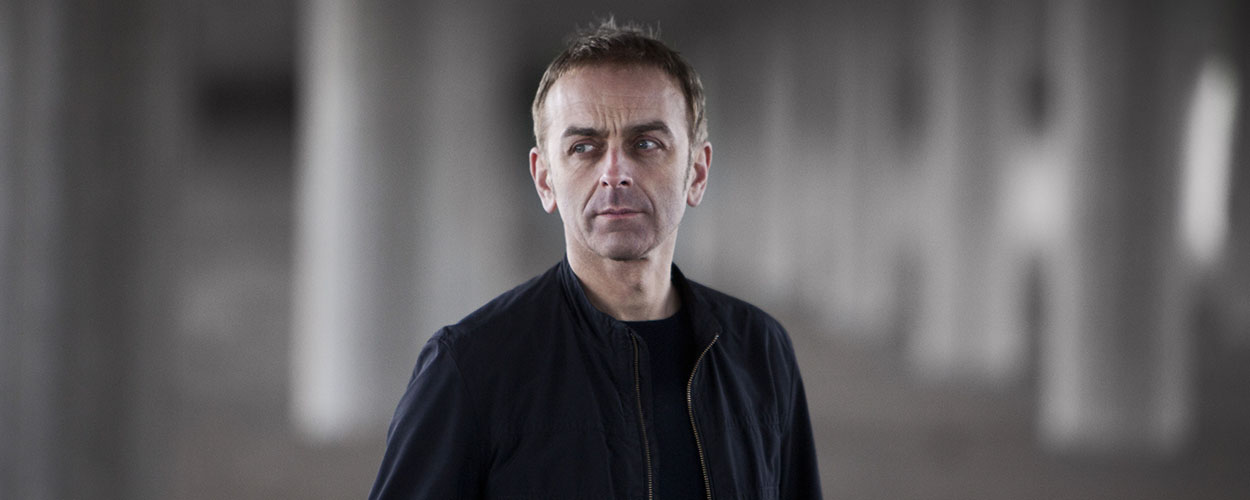
Karl Hyde is to publish a collection of diaries and photographs he has been posting on the Underworld website since 1999. The book, titled ‘I Am Godboy’, will be available through Faber & Faber on 3 Nov.,/h6>
Designed by longtime Underworld collaborator John Warwicker, the book picks a selection of diary entries and re-orders them into an autobiography, covering his childhood to Underworld’s early days. Various other standalone pieces of writing will intersperse the story.
Elsewhere in Underworld news, the duo have announced that they will play Alexandra Palace in London on 17 Mar next year.
READ MORE ABOUT: Karl Hyde | Underworld
Wednesday 29 June 2016, 10:17 | By Andy Malt
White Lies announce new album, tour
Artist News Gigs & Festivals Releases

White Lies have announced that they will release their fourth album, ‘Friends’, on 7 Oct. It is not a concept album based on the sitcom of the same name, but imagine if it was.
Explaining what it’s actually all about, bassist and lyricist Charles Cave says: “In the past couple of years, we’ve noticed friends’ life situations causing them to make big decisions – marriages, kids, moving out of London. Friendships have begun to feel adult and our perception of time has changed. As kids, if you didn’t see a mate for a fortnight, you’d wonder what was wrong. Now you might not see someone for six months and it doesn’t matter”.
The album’s first single, ‘Take It Out On Me’, is out now. It started out as an experiment to write a chorus using only numbers. A failed experiment, Cave notes.
“Right up until we recorded the song it was called ’89-1-3′”, he says. “It was inspired by a lunatic on Instagram who kept commenting on a friend’s photos in pseudo Biblical verse. From his profile I discovered he lived in a remote cabin with a rough-looking dog. He posted weird videos in which he quoted random numbers. As a challenge, I turned them in to a song. The only problem was that it went so well everyone said it should be the first single, so I relented and gave the chorus real lyrics”.
Yeah, ‘lunatic’ isn’t really a word you should be throwing around quite so readily, it being 2016 and all. Still, you can listen to the de-numbered song here:
The band will be touring later this year. Here are their UK dates:
22 Nov: London, Shepherd’s Bush Empire
24 Nov: Nottingham, Rock City
25 Nov: Manchester, Albert Hall
26 Nov: Liverpool, Arts Club
27 Nov: Glasgow, ABC
29 Nov: Birmingham, Institute
30 Nov: Leeds, Stylus
1 Dec: Bristol, Academy
READ MORE ABOUT: White Lies
Wednesday 29 June 2016, 10:12 | By Andy Malt
Ludacris to perform at Guantanamo Bay
Artist News Gigs & Festivals

Ludacris is to perform at Guantanamo Bay, entertaining the troops stationed there and their families, rather than the remaining inmates. The rapper will headline the ironically named Freedom Festival on 4 Jul, aka the US’s Independence Day (Brexiters note: a day marking actual independence from something – Britain, as it happens).
According to the Miami Herald, there is a great deal of excitement about Ludacris’s appearance, the audience having had to endure Magic! last year and Jimmy Eat World the year before.
“Every year we get a special guest around the Fourth of July, but Gitmo hasn’t seen a star with as big a name as Ludacris in several years”, Navy Chief Monique Hilley reportedly told Radio Gitmo. “The base is really looking forward to it”.
READ MORE ABOUT: Ludacris
Wednesday 29 June 2016, 10:08 | By Chris Cooke
CMU’s One Liners: Barry Gibb, Roger Waters, One Little Indian, more
Artist News Business News Deals Gigs & Festivals Labels & Publishers Live Business One Liners Releases

Other notable announcements and developments today…
• Following his stand out cameo at this weekend’s Glastonbury Festival, surviving Bee Gee Barry Gibb has signed a new deal with Sony – Columbia in the US, RCA in the UK – to release a solo album written with his sons.
• BMG is “delighted”, don’t you know, to have signed a long-term deal to represent Roger Waters’ Pink Floyd catalogue. And who can blame them? Not me.
• Jockey Club Live, the venture that stages gigs at racecourses, has a new Chairman in the form of Nicky Dunn, who previously worked in the arenas business before setting up an entertainment industry consultancy in 2011.
• One Little Indian has released a sampler to mark its 30th anniversary, featuring Fufanu, Samaris, Tucks, Wild Palms, Foxtrott, and Olga Bell. Listen here.
• Those new Metronomy tracks just keep coming. Here’s ‘Hang Me Out To Dry’, featuring Robyn.
• Rae Sremmurd’s second album, ‘Sremmlife 2’ is due out on 12 Aug. From it, this is new track ‘#DoYoga’.
• They, as in the hip hop duo They, have released a new track, ‘Say When’. The politically charged track is the first taste of what they assure us is “the strongest project of 2016”.
• Ezra Furman has announced a new EP, ‘Big Fugitive Life’, featuring tracks that didn’t make it onto previous albums. Here’s one, ‘Teddy I’m Ready’.
• Mabel’s released a new single, ‘Thinking Of You’. Watch the video here.
• Mauritanian desert-rock musician Noura Mint Seymali will release her second album, ‘Arbina’, on 16 Sep. Listen to the title track now.
• Chance The Rapper will play Brixton Academy on 22 Nov. Tickets here.
• Belly have announced UK shows, which will take place in July and wind up at The Forum in London on 21 Jul.
• Allusondrugs have announced UK tour dates in August, which they say “shall be the full and final musical undertakings of the entity known as Allusondrugs”. Dates here.
• Entries are open for this year’s UK Music Video Awards, which are now in their ninth year. The awards themselves take place on 20 Oct. Go here for info on how to enter.
READ MORE ABOUT: Allusondrugs | Barry Gibb | Belly | BMG | Chance The Rapper | Ezra Furman | Jocky Club Live | Mabel | Metronomy | Moura Mint Seymali | One Little Indian | Pink Floyd | Rae Sremmurd | Robyn | Roger Waters | Sony Music | They | UK Music Video Awards
Wednesday 29 June 2016, 09:59 | By Andy Malt
Apple granted patent for system to block music fans from filming live shows
And Finally Business News Digital

Apple has been granted a patent for a system that would block iPhones from taking photos and videos at live shows (or anywhere else you didn’t want them to).
The patent for the technology was originally submitted by Apple in 2011, then resubmitted in 2014, before being granted this week, according to Patently Apple. Using infrared light invisible to the human eye to transmit data to smartphone cameras, its primary use would seemingly be to provide augmented reality experiences in places like museums. However, a secondary use could be to disable the cameras.
The use of phones to photograph and video gigs has become a controversial topic in recent years, of course. Some feel like it’s a perfectly acceptable way to engage with a performance, while other people aren’t dickheads. Some artists have taken to putting up signs asking fans not to use their phones during the show, others have taken to shouting at people from the stage, and then there’s this frankly unworkable-sounding system. Contrary types Radiohead, of course, are encouraging fans to film their current shows.
Whether or not Apple’s system will ever get beyond the patent stage remains to be seen. If it does, it’ll be interesting to see what take up it has with artists and venues, and what reaction it would get from fans.
READ MORE ABOUT: Apple
Wednesday 29 June 2016, 09:02 | By Andy Malt
Approved: Suzanne Ciani & Kaitlyn Aurelia Smith – Closed Circuit
CMU Approved

The thirteenth edition of RVNG Intl’s collaborative album series ‘FRKWYS’ sees Suzanne Ciani team up with Kaitlyn Aurelia Smith.
Ciani came to prominence as an electronic composer in the 70s and 80s, her academic study of computer generated music leading to a prolific and acclaimed career spanning soundtracks, advertising and her own standalone work. A more recent addition to the experimental electronic music landscape, Smith has grown in stature over a number of albums, most recently ‘Ears’, which was released earlier this year.
For their ‘FRKWYS’ collaboration – which is titled ‘Sunergy’ and released on 16 Sep – the pair worked at Ciani’s house in Bolinas, California, the coastal community where it turns out they both live.
Having been created while the collaborators overlooked the Pacific ocean, the music is influenced by the unstable forces at work in what on the surface appears to be a serene view. This is clear in ‘Closed Circuit’, in which ambient sounds wash over one another, shifting in tempo and fighting for dominance, but nonetheless coming together to create a beautiful piece of work.
Listen to ‘Closed Circuit’ here.
Stay up to date with all of the artists featured in the CMU Approved column in 2016 by subscribing to our Spotify playlist.
READ MORE ABOUT: Kaitlyn Aurelia Smith | Suzanne Ciani
Tuesday 28 June 2016, 09:41 | By Chris Cooke
European Commission set to rule on the Sony/ATV deal in August
Business News Deals Labels & Publishers Legal Top Stories

Ah, the European Union. Remember that? What a crazy idea that was. Anyway, competition regulators in Europe could decide by 1 Aug whether or not to green light Sony Corp’s plan to take complete ownership of its Sony/ATV music publishing powerhouse. Both Warner Music and indie-label repping IMPALA have seemingly raised objections to the deal.
As previously reported, Sony/ATV was a long-term joint venture between Sony and Michael Jackson, or more recently the Michael Jackson Estate. Back in March, Sony Corp confirmed it had reached a deal to buy the Jackson Estate out of the publishing company which – because it also controls and administrates EMI Music Publishing – is the biggest music publishing business in the world.
With Sony Corp already owning the world’s second biggest record company, it’s not surprising rivals lodged protests about the entertainment conglom further expanding its interests in the songs business. The EC’s competition regulator has now confirmed its initial investigation is underway, with 1 Aug set as a provisional deadline for ruling on the deal.
The Commission could in theory block the whole thing on competition law grounds – ie it makes Sony too dominant in the market – but it is more likely to call for concessions, which usually means forcing the acquiring company to sell some of its prize European assets to rivals.
Shortly after Sony announced its intention to take complete ownership of Sony/ATV, IMPALA’s Helen Smith told Bloomberg: “It’s difficult to imagine how the Sony/ATV deal could get any kind of green light from the European Commission. Just three years ago the EC effectively set a limit when it already said Sony was too big and had to divest assets”.
Smith was referring there to the Commission’s decision when it investigated the Sony-led acquisition of the EMI music publishing company in 2012.
Back then, Universal’s purchase of the EMI record company seemed to get more scrutiny, possibly because there were other investors involved in Sony’s bid for the publishing business, and maybe because in Europe – on the publishing side – the power of the collecting societies reduces the power of the publishers to an extent. Though nevertheless, Sony still offered to sell off a couple of catalogues to get that deal green lighted.
It remains to be seen whether any such concessions will be required this time round. If the deals goes through, the Jackson Estate will pocket $750 million, some of which will be used to pay off the late king of pop’s lingering debts. The Estate will retain its stake in EMI Music Publishing as well as Mijac Music, which controls Jackson’s personal songwriting assets.
READ MORE ABOUT: European Commission | Michael Jackson | Sony Music Publishing
Tuesday 28 June 2016, 09:39 | By Chris Cooke
Eleven people claim to be heirs of Prince at court hearing
Artist News Legal
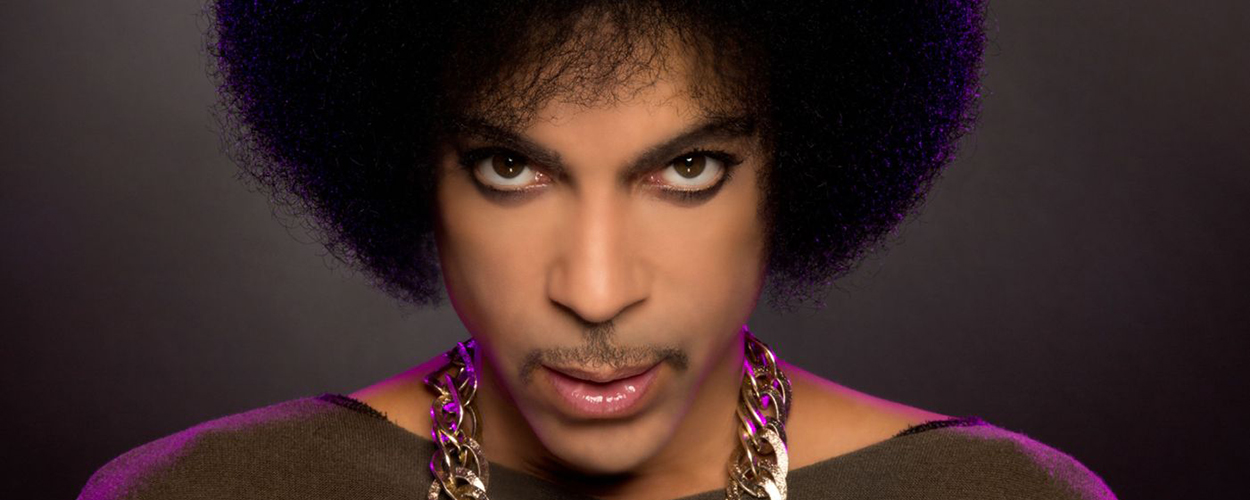
Representatives for eleven potential heirs of Prince took their seats in a Minnesota courtroom yesterday at a hearing designed to finalise the process for confirming each claimant’s case for being a blood relation of the late popstar.
According to Billboard, the eleven claimants include the musician’s sister Tyka Nelson and the five step-siblings she identified in her initial probate filing. She and four of those step-siblings were personally in attendance yesterday.
Other claimants include two other people who say they are step-sisters of Prince, two women whom claim to be the musician’s niece and grand-niece, and a man who claims to be his son. The latter was represented at yesterday’s hearing despite an Associated Press report that his DNA test had already shown there was not, in fact, a family link.
Those who are deemed rightful heirs of Prince will get a share of his fortune – valued at somewhere between $100 million and $300 million – as well as a say over how his catalogue – both released and unreleased – and legacy is managed moving forward. Legal reps for Nelson and the originally listed step-siblings urged the judge to reach a speedy conclusion on which of the eleven were legit heirs, stressing that decisions needed to be made about the Prince estate sooner rather than later, as well as adding “the family needs some closure”.
There is still some legal wrangling to be done. Nelson et al back a proposed plan by the trust overseeing the estate for working out who is a legitimate heir, firstly through paperwork and, if necessary, through genetic testing. But the lawyers repping other claimants raised issues not so much with that process, but with the trust’s interpretation of Minnesota probate and parentage law. Things are not quite as straight forward as the trust is saying, said some of the lawyers in the room.
Aware of the demand for speed from some claimants, but also the need to get this right first time, the judge said that there would now be a two week period for evaluating all the competing arguments.
As previously reported, Prince left no will when he died in April. A legal rep for the trust overseeing the estate confirmed administrators had searched thousands of boxes in four separate locations looking for a will and found nothing. “There’s no indication that a will exists”, said the lawyer. “We have basically now looked under every box lid”.
READ MORE ABOUT: Prince
Tuesday 28 June 2016, 09:37 | By Chris Cooke
Judge approves Happy Birthday settlement, basically making the song public domain in US
Business News Labels & Publishers Legal
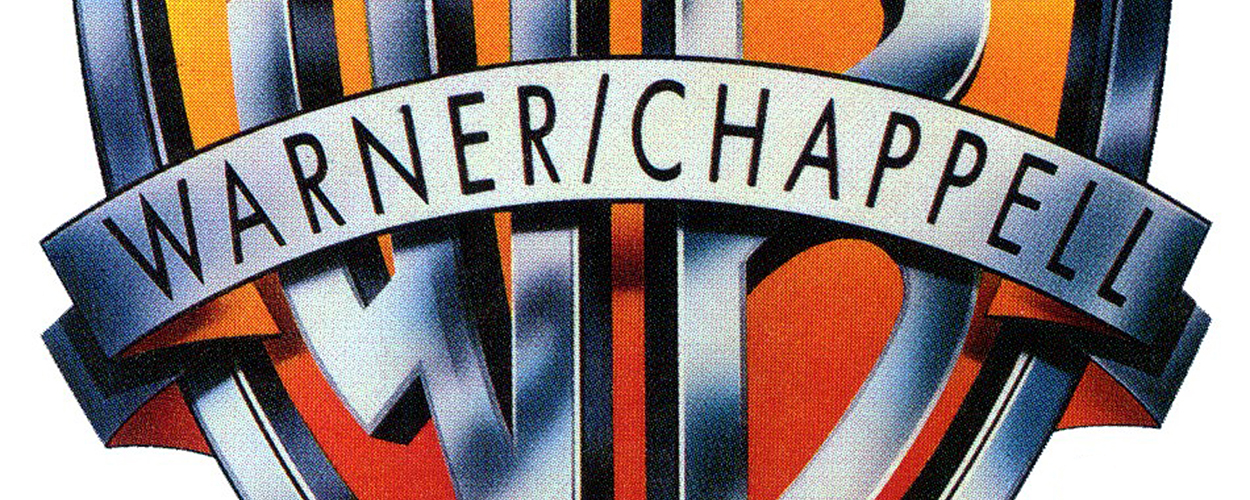
‘Happy Birthday’ is now very close to being a public domain work in the US, after a judge approved the previously reported settlement between Warner’s music publishing business and previous licensees of the famous song.
As previously reported, it was believed the lyrics to ‘Happy Birthday’ were still in copyright in the US, where songs from the early 20th century are subject to legacy copyright terms rather than the now more common life-of-the-creator-plus-seventy-years rule.
However, a film-maker who produced a documentary about the song came up with various arguments as to why ‘Happy Birthday’ was actually out of copyright Stateside, resulting in litigation with its publisher, Warner/Chappell, which had acquired ownership of the song in the 1980s.
Many of the arguments were never fully tested, however a court did rule that the two sisters who wrote the song never actually assigned the rights in the specific ‘Happy Birthday’ lyrics to the publishing company Warner bought.
Following that ruling, Warner announced a settlement in which it will accept the song is public domain in the US and set aside $14 million to refund people who had paid to use the song in America. But that settlement needed court approval.
Yesterday it got it, with judge George H King saying the settlement seemed reasonable and there was no reason it should not proceed. Though there is still a little legal wrangling to be done regarding the attorney fees to be paid by the publisher, with Warner’s lawyers due to respond to a proposal on that front by 12 Jul.
Technically things aren’t totally official until that last matter is resolved, but nevertheless, that’s basically ‘Happy Birthday’ now public domain in the US. Let’s all have a sing song. Well, you Americans can, there’s a few months still to go over here where the 70 year rule still applies.
READ MORE ABOUT: Good Morning To You Productions Corp | Warner Chappell
Tuesday 28 June 2016, 09:34 | By Andy Malt
Decapitated ask fans to buy t-shirts to fund legal action
Artist News Business News Labels & Publishers Legal

We’ve written and talked a great deal about the rise of direct-to-fan as a way for artists to build a more sustainable income. Using it to crowdfund legal action though, that’s a new one. Polish death metal band Decapitated have asked fans to buy a limited edition t-shirt in order to help fund a lawsuit against their former label, Earache.
The band claim that they have not received any royalties from the label since fulfilling their record contract in 2006. The following year their tour bus was involved in an accident, which resulted in the death of drummer Witold ‘Vitek’ Kiełtyka and left vocalist Adrian ‘Covan’ Kowanek in a coma. Initially disbanding, the band reformed in 2009, and released their fifth album, ‘Carnival Is Forever’, through a new deal with Nuclear Blast in 2011.
The band say that the need to pursue legal action now is down to “ongoing disputes with the label regarding these unpaid royalties and contested breaches of contract”.
In a video addressing fans, guitarist Waclaw ‘Vogg’ Kiettyka says: “We have, as a band, fulfilled all of the requirements on the contract. We recorded four albums, promoted them, played shows etc. However, [Earache] haven’t paid a penny in royalties since the deal ended ten years ago. For that reason, we have decided to begin legal action against the label. In order to raise the funds for the legal proceedings, the lawyers and so forth, we’re issuing a limited edition t-shirt”.
Watch Kiettyka’a video here:
Earache has not yet commented on the threat of legal action.
READ MORE ABOUT: Decapitated | Earache Records
Tuesday 28 June 2016, 09:29 | By Andy Malt
Wye Oak’s Jenn Wasner announces debut solo album, signature guitar
Artist News Business News Deals Labels & Publishers Releases

Wye Oak’s Jenn Wasner has signed two new deals – one with Partisan Records for her debut solo album under the name Flock Of Dimes, the other with Reverend Guitars for her own signature guitar.
In a blog post to accompany the announcement of the guitar, Wasner writes that her relationship with the instrument has actually been a strange one. As Wye Oak began to get more popular, she noticed more people commenting on the fact that she could play guitar quite well.
“Sounds fine on the surface, I guess”, she writes. “Imagine, though, that you’re on tour, and every single night you play with a different group of dudes who are truly – objectively! - equally or more capable at the instrument than you are. And no one draws any additional attention to them – it is taken in stride. Meanwhile, time and time again, you are fawned over like a child who’s just taken her first steps”.
This ingrained sexism towards female guitar players caused her to begin to move away from her chosen instrument, which is partly why she was initially unsure about accepting the offer made by Reverend.
“At first, I balked”, she writes. “I think this is because, to me, the ‘signature guitar’ was the realm of the soulless shredder - impressive, sure, but you’re missing the point. It represented the elevation of pure chops over invention, emotion, innovation, and truth. It was in direct opposition to everything I stood for! It wasn’t until my partner pointed out that perhaps this association is in part because so few women have been given the opportunity to do this sort of thing that I realised I couldn’t say no”.
The guitar was designed with April Camlin, who has also worked on the visual side of Wasner’s Flock Of Dimes project. The album is due out later this year. Watch a very brief teaser video for the project here.
READ MORE ABOUT: Flock Of Dimes | Jenn Wasner | Reverend Guitars | Wye Oak
Tuesday 28 June 2016, 09:24 | By Andy Malt
LyricFind announces deal with Google
Business News Deals Digital Labels & Publishers

LyricFind has announced a new deal to provide licensed lyrics within Google Search and Google Play Music.
“We’re happy to expand the depth and quality of lyrics available on Google’s services”, says LyricFind CEO Darryl Ballantyne. “We’re working together to make lyrics available to a larger audience in a faster and more efficient way”.
The company represents over 4000 publishers for online lyric licensing, including all three majors and Kobalt, and has deals in place with companies including Deezer and Shazam. And earlier this month LyricFind announced an expansion into Brazil via a partnership with independent distributor Tratore.
READ MORE ABOUT: Google | Google Play Music | LyricFind
Tuesday 28 June 2016, 09:23 | By Chris Cooke
Uber announces a Pandora tie up
Business News Deals Digital

Pandora has followed Spotify in announcing an alliance with those Uber types. It means Uber drivers in the US will be able to get themselves a personalised Pandora stream from within their driver app – and for six months with no ads and unlimited skips for free. After six months they’ll either have to start paying or tolerate some advertising.
As with Spotify’s tie up with Uber, announced in 2014, eventually punters will be able to get in on the act, so that they will be able to force their Pandora streams into their driver’s ears via his or her car speakers. Good times.
Says Bob Cowherd, Uber’s Senior Product Manager For Music And Media, which is an actual job at a company that runs a taxi market place: “It can be challenging to find high quality music that both drivers and riders love – without radio ads and interruptions to the music. This integration will make it easier for drivers and riders to listen to the music they love”.
READ MORE ABOUT: Pandora | Uber
Tuesday 28 June 2016, 09:23 | By Andy Malt
CMU@TGE: Who the hell is buying all these CDs?
Business News Labels & Publishers Retail The Great Escape 2016

Look out for insights, advice and viewpoints dished out at this year’s CMU Insights @ The Great Escape conference here in the CMU Daily throughout June and into July. This week, some of the takeaways from the physical products strand.
In our first dive down into the ‘CDs! Vinyl! T-shirts! Who the hell is buying this stuff?’ strand, we look at the discussion that followed CMU Business Editor Chris Cooke’s presentation on the physical market – as covered in this CMU Trends article here. Speaking to representatives of both music retail and the labels, we asked why the CD market has remained stronger than expected in the UK and what the future holds.
Part of the public perception that the CD is dead has been driven by the media, reckoned BPI boss Geoff Taylor. “[The media is] only interested in what’s new, and therefore there’s such a strong narrative of digital taking over and the CD disappearing that it forgot a lot of the great characteristics of the CD. It’s not a fluke that the CD’s been around for 30 years or more”.
Although he conceded that the record industry itself should take some blame for leading people to believe that the CD was a product with no future. “The industry was criticised so badly from the early 2000s onwards for being resistant to technology and for not embracing the internet that I think our own narrative became obsessed with being seen to be progressive”, he said. “BPI were probably as guilty of that as anybody. You know, showing that the industry was preparing itself for its future. I think that was really important, but we stopped talking about physical and how great physical is”.
Of course, the narrative now is that vinyl is the be all and end all when it comes to physical product, but again this misses the core of what is actually happening in the physical market, says founder of Brighton independent record shop Resident, Natasha Youngs.
“For a lot of people, vinyl is prohibitively expensive”, she said. “People have spent years building up their collections, and by nature we are creatures of habit. I know the industry is constantly looking for new, new, new all the time, but people have collections already that they just want to add to. They’re casual buyers and they don’t want to start a whole new collection again with vinyl. We see a lot of people who are just dipping into buying and want something that they feel familiar with at a price that is really comfortable for them. You can still buy brand new CDs for £10. It’s an easy price point for people to manage”.
“A lot of music fans in this country are quite casual music fans”, agreed Taylor. “Some of them may be ready to make the leap over into £120 a year Spotify subscriptions, but not all of them. One of the advantages of physical that people tend to forget about is that you only spend money when you really want to spend money on something, and the rest of the time you don’t spend any money. There are lots of consumers who want to behave like that”.
“I don’t think there’s ever been a time when the simple sound of music was enough for people”, added HMV’s John Hirst, on physical’s continued appeal. “There’s always been an element of joining in, or buying a stake in an artist you love or a label you love, and digital quite simply comes up short on that front. For a lot of people, and particularly young people, that’s still very important”.
“It’s a process of building up an identity for young people”, continued Proper Music Distribution’s Vangel Viaski, on the same point. “We forget the psychological element of projecting outwards your personality, what you like, what you dislike, and belonging to a tribe as well. It’s identity-forming, and I think the physical element of it is quite crucial”.
Viaski also added: “I think as an industry we should stop the divide in the perception of digital music and physical music. We’re always talking about how physical is fighting digital in terms of percentage and market share and all that, but I think it’s one big landscape that’s very symbiotic”.
While people maybe building physical collections alongside digital consumption, there’s still the matter of what drives CD sales. Taylor and Hirst both suggested that this Christmas could be a big one for music, as the rise of film and TV services like Netflix has had a more profound effect on DVD sales than music streaming has had on CDs and vinyl.
“A huge part of the industry is people buying CDs for other people”, said Hirst. “Q4 is such a huge part of the industry and people aren’t buying CDs for themselves there, so when Little Mix sell 200,000 CDs in six weeks, the majority of those aren’t self purchases. It’s as much about what people think their kids want, as much as what kids want themselves. If kids were disappointed [by this], it would have stopped by now, after ten years of kids being disappointed people would have learned not to give their kids CDs”.
“I think it’s an opportunity for people to be part of the fans’ campaign, where they physically hold something in their hand”, said Youngs. “If they download the album they don’t feel that they are physically part of that band. I still see masses of it, people coming in on the day of release or over the weekend, and they are so excited that they can be part of the release of that album, and they can do that through a CD”.
Changes to how retailers operate – both on the high street and in independent stores – has also had a profound effect on the market. HMV’s administration triggered something that should have happened long previously, said Hirst: shutting down stores that weren’t pulled their weight. Had rivals also seen this, they might also be around today too.
“The big change for HMV [since administration] is the attitude that we will manage our estate in line with the performance of the market, and I think that’s something that the industry didn’t really do”, he said. “The impact of those shops going, particularly Virgin, I think accelerated the decline of the physical market massively, and I think a lot of people forget about that. For those last few years, to be perfectly honest, we weren’t carrying any catalogue because we didn’t have the money to buy it. It’s only since we came out of administration that we’ve been able to carry a full range again. I don’t think it’s any coincidence that the market stabilised at the same time as that”.
He conceded that this couldn’t be put entirely down to HMV though, saying that independent shops are now far better than they used to be: “Going into an independent record shop is a much more pleasant, exciting experience than it used to be. Record shops used to be staffed by arseholes – you can’t afford to be an arsehole anymore”.
“A lot of independent record shops were kind of operated almost by hobbyists”, said Youngs, somewhat more diplomatically. “It was a thing you could do just for love really. The way that the industry’s changed now, you have to sit in front of a spreadsheet a lot of your day. That’s what running a record shop is these days. A lot of things that go with running a business now just didn’t suit a lot of independent record shops. That’s why a lot of them went. It wasn’t just to do with the industry, the change in product. It was to do with a lot of things. Including rent, which never gets mentioned. What we’re left with now is a lot of people running them as businesses and working bloody hard to do so”.
While UK music retail does seem to have stabilised in recent years somewhat, there is now a new digital competitor other than downloads and streams: the rise of direct-to-fan, with artists and labels selling CDs and vinyl direct to fans via their websites.
“Quite often it’ll be that we build the band up through singles and their first album, and then the second album is made available direct to fans online”, said Youngs. “It’s a constant battle, someone will come in and say, ‘I heard there was a blue vinyl version of this’, and I’ll have to say, ‘Well, there is, but unfortunately you’ll have to buy it from the band’s website’. We’re constantly all fighting for the same sales”.
Though this is not always the case, she said, holding up the release campaign for Radiohead’s new album in particular. “It was all inclusive, everyone got something”, she said.
Defending the labels, Taylor added: “Labels don’t see themselves as retailers, and they do want to do things in partnership, and they realise they need the expertise of the retailers. It’s really complicated. There are debates around exclusives and windowing. The labels are trying to work out what’s even the right order to release things. Two years ago, the labels were really pushing digital, but now they really understand the multi-channel nature of the market”.
READ MORE ABOUT: British Phonographic Industry (BPI) | Geoff Taylor | HMV | John Hirst | Natasha Youngs | Proper Music | Resident Records | The Great Escape | Vangel Viaski




